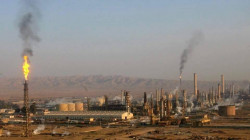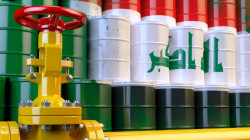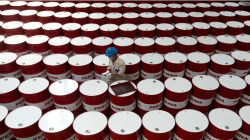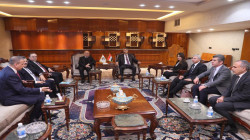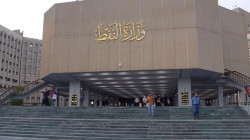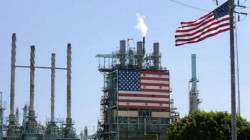Analysis: Oil bosses join Baghdad talks in sign of Iraq-Kurdistan progress
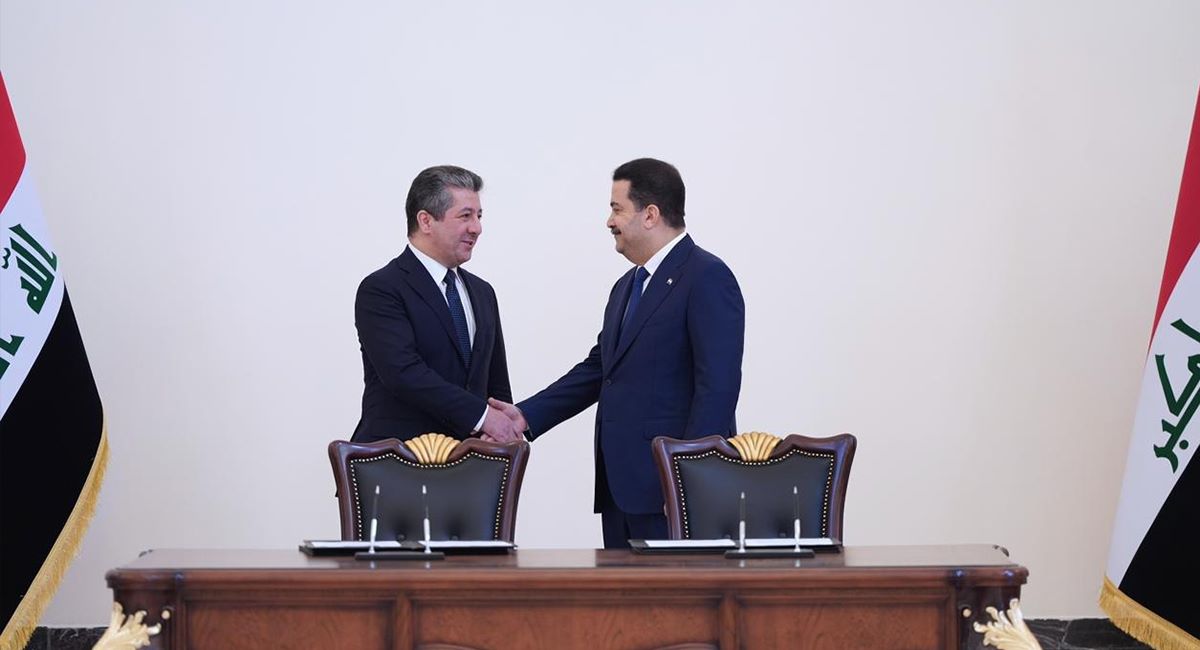
Shafaq News/ When Iraqi and Kurdish officials met in Baghdad this week over a long-running dispute that has halted oil exports from Iraq's semi-autonomous region of Kurdistan, insiders said the presence of international executives underscored a new resolve.
In the room on Monday was Russell Hardy, head of the world largest oil trader Vitol, alongside executives from trading houses Petraco and Energopole, and representatives from U.S.-based producer HKN Energy and Kurdish oil company KAR Group, three sources familiar with the talks told Reuters.
The executives, whose companies play a major role in Kurdish oil production and development, were there to offer ideas on the best way forward, the sources said, after disruption to Iraq's northern exports via Turkey cut 0.5% of global supply and sent prices surging.
Iraq, OPEC's second largest oil producer, exports the bulk of its oil through its southern Gulf port of Basra.
An Iraqi oil ministry official with knowledge of the meeting said the aim was to reassure the companies that their deals with the Kurdistan Regional Government (KRG) were secure.
Baghdad and the KRG signed a temporary agreement on Tuesday to restart northern oil exports as part of efforts to end decades of political and economic disputes.
The development was seen as a major breakthrough, showing Baghdad and Erbil are determined to sort out disputes about oil, debts and ultimately their political and economic differences.
"Everyone is trying to compromise. It is massive for internal Iraqi politics. The federal government wants to keep the whole country together after years of problems," a source familiar with the talks said.
Monday's meeting between KRG and Iraqi officials, alongside the international executives, struck a similar tone, aiming to build confidence among all sides, two sources said.
KAR confirmed it was at the meeting, but declined further comment. Petraco confirmed its presence at talks in Baghdad and said it was currently awaiting further developments. Vitol declined to comment. HKN Energy, Energopole and the KRG did not respond to requests for comment.
Matters had come to a head on March 25, when Turkey stopped pumping about 450,000 barrels per day (bpd) of Iraqi crude through a pipeline from the Fish-Khabur border area to its Ceyhan port after Iraq won an arbitration case.
Baghdad said Turkey had violated an agreement by allowing the KRG to export oil to Ceyhan without its consent, one of several points of contention between the federal government and the Kurdish authorities in Erbil, which in 2017 made a bid for independence that sparked a brief conflict.
Any resolution to the oil dispute would boost the international industry's confidence in Prime Minister Mohammed al-Sudani's cabinet, which took office in October, ending a year of political deadlock in Baghdad.
In a bid to boost Iraqi oil output, politicians close to al-Sudani and key energy officials say he wants to restore confidence among foreign investors and show Baghdad's readiness to cooperate with international oil firms, including attending all major energy events in person.
FURTHER TALKS
Attendees at Monday's meeting agreed to hold further talks on how to adjust contracts with the KRG in a way that would not violate the exports and marketing mechanisms of Iraq's state-owned marketer SOMO, the oil ministry source said.
They also discussed the pricing and destination of KRG crude, one source said
Pipeline flows from northern Iraq have yet to resume as Iraq awaits a response from Turkey, two sources told Reuters on Thursday, but once they do the temporary agreement states SOMO will have the authority to market and export KRG oil, two Iraqi officials told Reuters on condition of anonymity.
Revenues will be deposited in an account under KRG control at the Iraqi central bank, but Baghdad will have access, the sources said.
"A major difference from the past is that SOMO's involvement will make Kurdish crude fully marketable," a source familiar with the talks said.
Kurdistan previously relied on traders placing crude with the small number of refiners which were prepared to take the risk of potential legal battles with Iraq's central government.
Further complicating the picture, Kurdistan has borrowed billions of dollars from trading houses and oil producers, including to build a new pipeline to Turkey, pledging to repay debts from future oil exports
So when Kurdistan's oil exports were suspended last month as a result of the arbitration court ruling, it also halted repayments of $6 billion worth of debts to trading houses, including Vitol, Petraco and Energopole.
Baghdad has long refused to acknowledge the existence of Erbil's debts, amassed after budget transfers stopped.
As part of their efforts to resolve broader differences, Baghdad and the KRG have outlined a framework for a draft budget law, with talks to begin on a new federal oil and gas law, Kurdistan's Prime Minister Masrour Barzani said on Tuesday.
This includes an article relating to four international companies and their legally-binding obligations with the KRG, federal government spokesman Basim al-Awadi said.
Source: Reuters
